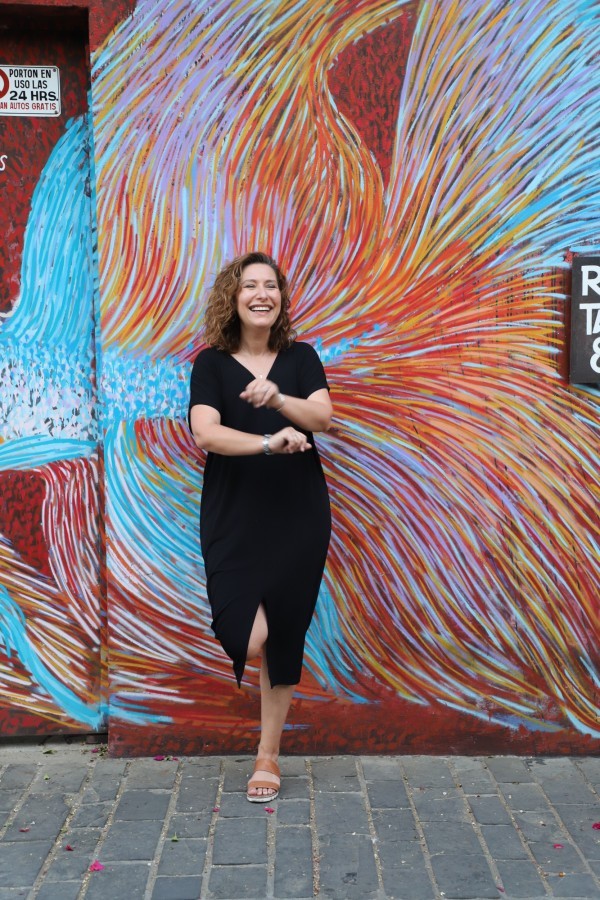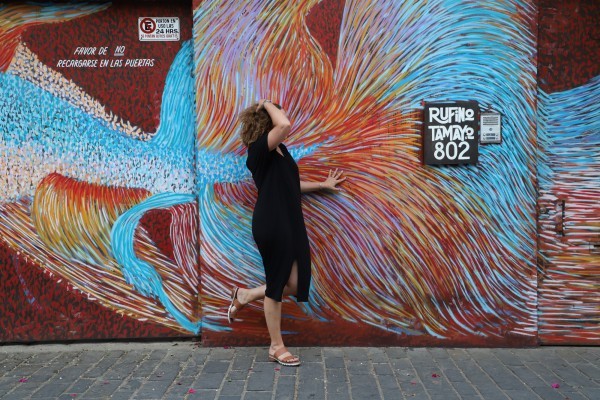
Adoption is complicated. And when I think about my infertility and adoption journeys, the complications multiply.
When people ask why Lenny and I don't have children, I feel judged. And when onlookers are comfortable telling us that it's time for us to adopt my temperature rises -- I hate it. Yes, I know hate is a strong word. But, it is excruciating to be reminded that cancer stole our opportunity to share the bond of a biological child.
Adoption isn’t a treatment plan for the grief that emerges from infertility. Adoption isn’t the answer to the millions of questions that are embedded in its journey.
Unfortunately, when you use adoption as an oversized bandage for infertility-induced grief, you never fully recover because your wounds continue to be susceptible to the infections of fear, doubt, and shame.
It’s complicated.
What to say to your friends who don’t have children
Listen up, please! The world is opening up again, and we are starting to all gather and connect. So think about this post when you run into your friend who doesn't have kids.
Before you inquire about their family plans, pause and ask yourself, "Why am I asking this question?" and "Is this really any of my business?"
If you want to show your support to someone who is struggling, then just do that -- Tell them you love them or ask how they are managing. Then listen and don't give your opinion unless they ask for it.
“Life after a crisis is full of blessings AND reminders of pain, loss, and disappointment. But, just know that joy and sadness are usually found holding hands!”
— VANESSA JOY WALKER
I don’t expect strangers to understand my complex perspective on using adoption as a solution to infertility but I wish they knew that adoption is a beautiful and complicated experience for everyone involved. My story is no different.
My life is beautifully complicated
Who can agree that one of the most complicated blessings in life revolves around our families? Those people that we love, embrace, and tolerate all at the same time. Families are beautiful, and I have yet to encounter one that isn’t covered in complications.
At the center of my most complicated familial relationships lies my genetics—the family that I share them with and the family that I don’t. I have a hard time writing about my biology because it is so complicated—the more I try to make sense of it and understand it, the more restless and confused I become. I used to be obsessed with the “why?” You know, I wanted to know and understand WHY everything happened. WHY was I abandoned? WHY did my God choose to put me in a different family?
I hardly knew anything about the woman who carried me around in her belly for nine months. This is the mother that I never hugged, touched, or held. As an adult, I’ve learned that she staged a sit-in at her high school so that girls could wear pants. I guess you could have called her an activist! My intense feelings around justice and equity indicate that I am clearly her daughter. She was also a caregiver and a helper. As a much-be-loved nurse, she dedicated her life to assisting people who were sick but unfortunately couldn’t help herself. Her life was complicated, and I was a part of that complication. I was a part of her crisis and the focus of her pain. That’s hard to swallow sometimes.

The complications continue…
I “met” my birth mother over a phone call after I had joined the Canadian Adoption Registry. When I picked up the phone and heard my first mom, Ann’s voice for the first time, it was definitely one of the more emotionally complex moments of my life. (You’ll have to read my book, Make Room for Joy to see how it all played out.)
When I got word from my biological brother that my first mom had passed away shortly after our phone call, before I had ever had the chance to meet her face to face, it felt like time stopped.
The grief.
The regret.
How could I be grieving someone so intensely that I never actually met? The pain was unbearable and impossible to understand.
Years later, I can reflect on this and see the beauty in every detail of this complicated and devastating situation. I understand that God gifted me a unique opportunity to connect with my first mom only months before her passing. I see that my mom Ann was able to take her last breath knowing that her firstborn child always cherished her and was safe, happy, and loved.
Adopted but not rejected
Back in May, when I shared my thoughts that adoption isn’t the answer for infertility, I had one comment in particular that hit me like a ton of bricks.
They said, “adoption is a great way to give love to a child who has been rejected.”
Rejected.
What I didn’t share along with my thoughts about adoption and infertility is that I am an adoptee.
So, these words stung and I wanted to address them directly. You can watch the whole video here, but I will share the gist of what I need everyone to know about adoption.
Reframing what it means to be adopted
Here’s what helped me reframe what it means to be adopted.
Even though I was abandoned at birth, I was not rejected.
I was chosen.
“I was chosen not once, but twice. First by my birth mom and second by my second mom.”
— VANESSA JOY WALKER
My first mom chose to have me. She could have decided to have an abortion, instead, she chose to carry me for 9 months and give birth to me. Then she chose to give up her rights to know me, hug me, and hold me.
My second mom and dad chose to love me after they had experienced their own infertility-based grief. After they had tried for years and years to have their own biological children, they chose to know me, hug me and hold me.
My second mom often reminded me what a sacrifice it was for my first mom to let me go and release me into the unknown. I don’t resent my first mom or hate her for what she did. I love her. I always have.
Although I was abandoned when I was born, I was not rejected. I was chosen by many and I was loved by many.
I hope this reframes some beliefs you might have about adoption and infertility. It’s also why you might hear some different perspectives from me on these topics. My experiences are unique and complicated and it allows me to share my story in a way that might help someone out there who needs to hear a different way of thinking about their grief and struggles. Learning the difference between abandonment and rejection was vital to my growth and acceptance of my beautifully complicated identity.

This post comes from the TODAY Parenting Team community, where all members are welcome to post and discuss parenting solutions. Learn more and join us! Because we're all in this together.
